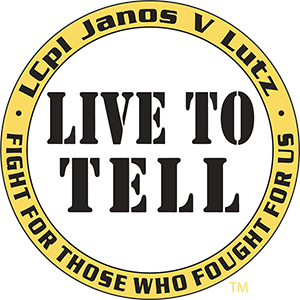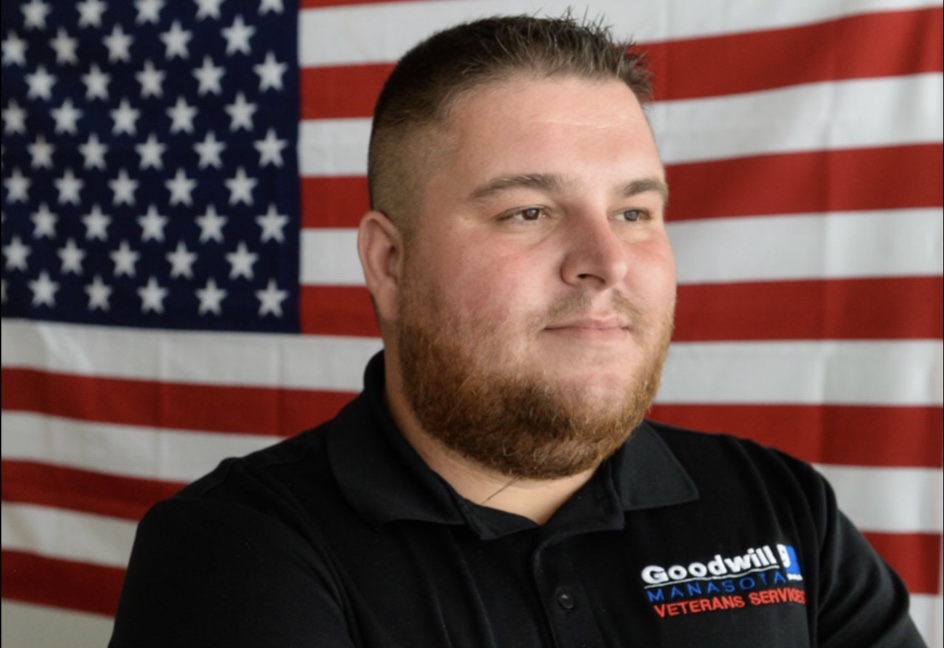Veteran suicides darken Memorial Day
Monday, May 27, 2019
By Billy Cox
With veteran suicides far outpacing combat fatalities, many veterans want legal access to medical cannabis, but the VA is resisting because of federal restrictions on marijuana
SARASOTA — Proclaimed in 1868 as a moment to honor those who died while serving in the armed forces, Memorial Day lately finds latter-day U.S. troops and veterans contemplating an even darker meaning of sacrifice.
According to Brown University’s “Costs of War Project” released late last year, 6,951 troops have been killed in America’s wars since 2001. But that toll pales in comparison to what survivors of those conflicts are doing to themselves. Using the Department of Veterans Affairs formula of 20.6 suicides a day, some 7,519 uniformed and retired military personnel took their lives in 2018 alone.
And as the federal government continues to oppose a controversial herbal remedy that many veterans insist can and does mitigate their suffering, countless peer-support groups are multiplying across the country in hopes of filling the vacuum and tapping the brakes on this bleak spiral.
“You can go to all the counseling you want, but I think what you really need is people of your generation who’ve been there,” says Todd Hughes, an Army veteran and program manager for Goodwill Manasota’s Veterans Services Program.
 Hughes says he’s lost six brothers in arms to suicide, and hopes a new local grassroots initiative called Lutz Buddy Up can nudge struggling veterans out of their isolation and connect them with others who’ve found stable footing. “If we can just save one,” he says, “it’s worth it.”
Hughes says he’s lost six brothers in arms to suicide, and hopes a new local grassroots initiative called Lutz Buddy Up can nudge struggling veterans out of their isolation and connect them with others who’ve found stable footing. “If we can just save one,” he says, “it’s worth it.”


Hughes says he’s lost six brothers in arms to suicide, and hopes a new local grassroots initiative called Lutz Buddy Up can nudge struggling veterans out of their isolation and connect them with others who’ve found stable footing. “If we can just save one,” he says, “it’s worth it.”
But the body counts keep stacking up.
After 25 veterans killed themselves at VA facilities over the previous 18 months, the crisis dominated a House Veterans Affairs Committee hearing in April and elicited pledges of urgent bipartisan legislation on monitoring and research. That session came on the heels of a Government Accountability Office report in December indicating less than 1 percent of federal funds earmarked for suicide prevention in 2018 had been spent — or $57,000 of a $6.2 million allotment.
In January, the VA’s National Director of Suicide Prevention, Dr. Keita Franklin, explained that the funding, designed to advertise and market its services, was put on hold after program designers felt the strategy was flawed because it was targeting only high-risk groups. Appointed to the job last year after the position sat vacant for eight months, Franklin said the program has since been restructured to address broader audiences.
The nation’s largest and oldest veterans service organization, however, says a long overdue drug-policy shift could likely make a difference overnight.
In late 2017, after member surveys revealed overwhelming support for safe and legal access to marijuana, the American Legion formally urged Congress to scratch cannabis off the Schedule 1 list, where it has been erroneously classified since 1970.
Pushing back
Last year, in a project called Warriors Rise Up, https://www.rxforveterans.com/?fbclid=IwAR0UNBb1xjCAWdLB0lIcCZfXiKjgtbc_tCrzzWygcL86MQuO8PjRrXjHH-U the Herald-Tribune took an in-depth look at veterans who risked careers and reputations with marijuana to get relief from physical wounds, post-traumatic stress disorder and traumatic brain injury.
Many complained that legally prescribed medications such as opioids turned them into addicts, wrecked their health and made them suicidal.
More than 2.5 million Americans are estimated to be state-registered medical marijuana patients, despite the fact that a Schedule 1 substance by definition has no medical benefits. Because cannabis is federally classified as a drug more dangerous than heroin and cocaine, the VA is prohibited from sponsoring or even recommending its use.
During Congressional hearings earlier this month, the VA’s Franklin opposed three legislative motions to improve access to cannabis. She warned that VA doctors could be prosecuted by the Drug Enforcement Administration if they made marijuana referrals for veterans, even in states where medical programs are legal.
In Florida, some legislators continue to push back against a medical referendum that easily won public approval in 2016 with no strings attached. But when State Rep. Ray Rodrigues, R-Estero, attempted to tweak the law again, angry veterans converged on Tallahassee for a heated showdown that forced Rodrigues to stand down — at least for now.
Less than a month after Gov. Ron Desantis ended the state’s ban on smokable marijuana, which the Legislature fought for two years, Rodrigues, chair of the House Health and Human Services Committee, moved to cap marijuana’s levels of THC — the weed’s psychoactive ingredient — at 10 percent. Among those opposing his proposal was Kelly Wahlers Parrott, a former Army Blackhawk helicopter mechanic who was discharged in 2012 after being victimized by sexual assault.
She was since diagnosed for PTSD, and says some of the 18 prescription drugs she was taking factored into her three suicide attempts. She credits marijuana for trimming her meds down to three prescriptions, for migraines. Today, Parrott is a nurse and vice president of the Tampa chapter of the nonprofit Weed for Warriors Project. She said the idea of a politician playing doctor with dosage levels left her and fellow veterans “devastated.”
“This is a big factor in reducing the veterans suicide rate, and we don’t like being sourced as criminals,” Parrott says, “which is essentially what this cap would do.” Adding insult to injury, she says, was the proposed bill’s pledge to mollify veterans by waiving the $75 fee for a medical marijuana card.
More than two dozen veterans signed up to testify, she says, prompting the committee to limit comment to a mere 10 seconds apiece. The debate became so contentious, a committee chair summoned the sergeant at arms to prevent further escalation. The Senate rejected companion legislation, but Parrott expects the House to revive THC limits again next year.
“Who are these people?” wonders Iraq war veteran Jose Belen of Orlando. “Who are (politicians) to tell patients what percentage of cannabis they should ingest? It’s sickening, it’s disgusting, and now we’re having veterans committing suicide in VA parking lots, some of them in the waiting room. This is an open scream; this is a battle cry for help.”
Belen, who endured grueling opioid withdrawal pains before transitioning to cannabis, is part of a lawsuit challenging the Justice Department and the DEA over the constitutionality of keeping marijuana on Schedule 1. The suit is awaiting a verdict in the U.S. Court of Appeals 2nd Circuit in New York. Last month Belen testified at the National Cannabis Policy Summit live-streamed by C-SPAN in Washington, D.C., to denounce the “national tragedy” of relying solely on prescription drugs that “push you closer to pulling the trigger.”
Although three bills designed to strike marijuana from Schedule 1 are pending on Capitol Hill, Belen calls the slow pace of legislation inexcusable, given the stakes. “Congress should be ashamed of itself,” he says.
‘I needed somebody to talk to’
The VA’s National Suicide Data Report, released in 2018 and covering the years 2005-2015, indicated that 3.8 of the daily suicides were committed by active-duty troops, or roughly 1,387 a year. Military suicide rates were twice that of the civilian population, with the highest rates reflected in the 18-34 age range. However, veterans 55 and older accounted for the highest percentage in 2015, at 58.1 percent.
Ed Padilla, district veterans service officer for American Legion Kirby Post 24 in Bradenton and longtime mental health counselor, calls the suicide epidemic “absolutely cross-generational, all ethnic, socio-economic and educational categories, from officer to private.”
The Vietnam-era Army veteran says a lot of his demographic peers are beginning to come to mortal terms with wounds seen and unseen, like Agent Orange contamination. But one of his younger clients wondered aloud “why is our generation such wussies, why are we wimping out? The World War II guys seem like they just sucked up it up.”
“I said no, they didn’t suck it up,” Padilla says. “They were limited in their ability to have access to somebody to vent to and hear their issues. War is war, whether you’re a doughboy or you were in Afghanistan. Frankly, I don’t think there’s enough vets coming out and asking for help. I understand they’re afraid they’re going to be judged or ostracized or profiled as having a mental health issue and someone could take their guns away.
“That’s why it’s important get something like Buddy Up going. The idea isn’t new, there’s a number of these support groups popping up to get veterans together to talk about life and kindle that spirit of camaraderie. And we’re talking about first responders, too.”
Named for Johnny Lutz, who intentionally overdosed on VA-prescribed pills in 2013 after serving with the USMC in Afghanistan, the nonprofit Lutz Buddy Up group enjoyed a low-key rollout two weeks ago at the Goodwill Manasota Veterans Services office in Sarasota. Founded in Broward County five years ago by the late lance corporal’s mother Janine, the networking concept now counts fledgling chapters in Wilmington and Bellingham, Massachusetts, with more to come.
“This is not a PTSD group,” Lutz told her audience. “This is for the sole purpose of building a local community.” The idea, she said, is to convene for a monthly meal, meet strangers with shared military or first-responder experiences, and exchange phone numbers. If the group gets large enough, those connections will be compressed into a free app that can connect those in distress with a local fellow veteran with a phone call.
Jeremiah Robinson, a career development facilitator with Goodwill Manasota’s veterans program, says an app like that might’ve come in handy a few years ago. Years ago, one of the retired Marine sergeant’s unit subordinates left a message, saying he wanted to go fishing. Robinson didn’t get back with him. The next day he was contacted by his buddy’s widow, saying her husband had put a bullet in his head.
“I wasn’t there for him, and it really hit me hard,” Robinson says. “It drove me down a path I didn’t see coming.” He began shutting other people out of his life, and getting back to a safe place was a struggle.
“I remember calling the VA hotline and they were telling me, ‘Go to a hospital, go to a hospital,’” he says. “Well, I didn’t need to be calmed down, I didn’t need to go to a hospital. I needed somebody to talk to.”
Retrieved from: https://www.heraldtribune.com/news/20190527/veteran-suicides-darken-memorial-day?fbclid=IwAR2InlG84rKiQ1nV22EhieLzG6GbNPPeQOCblBrviNux6ySAmYAfBNt555Q

